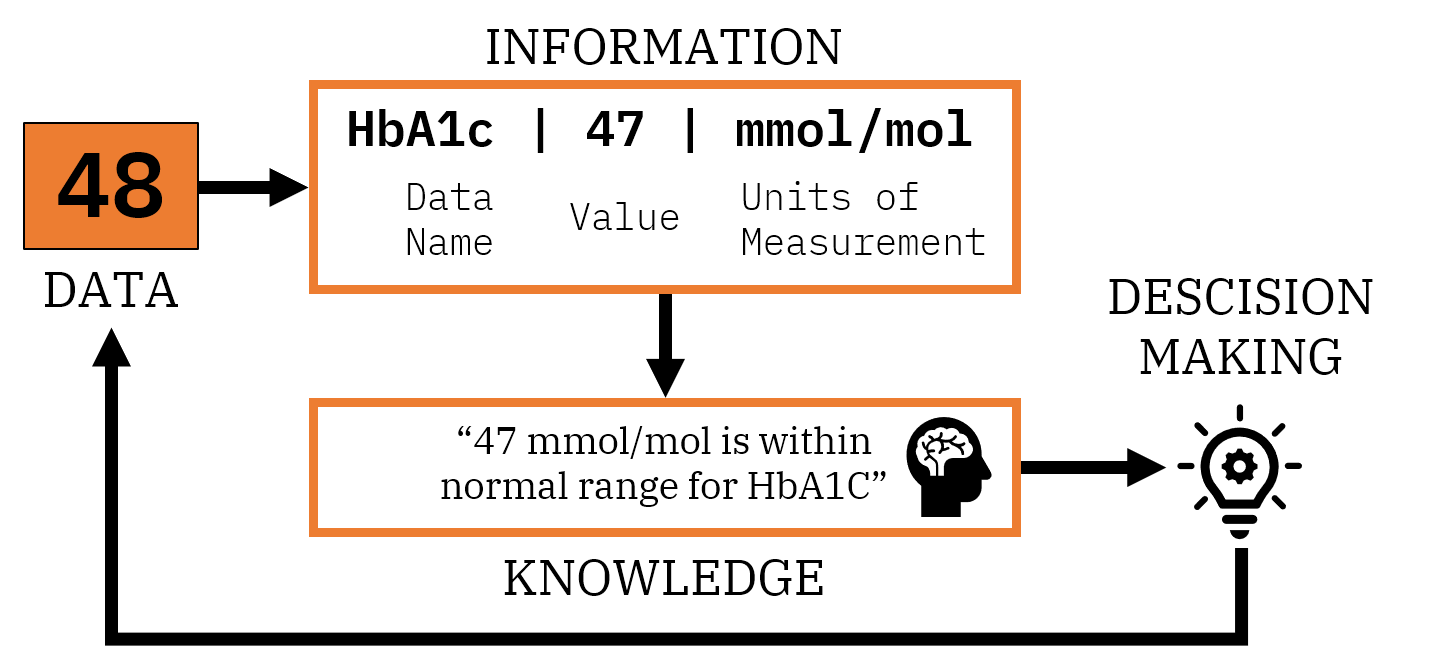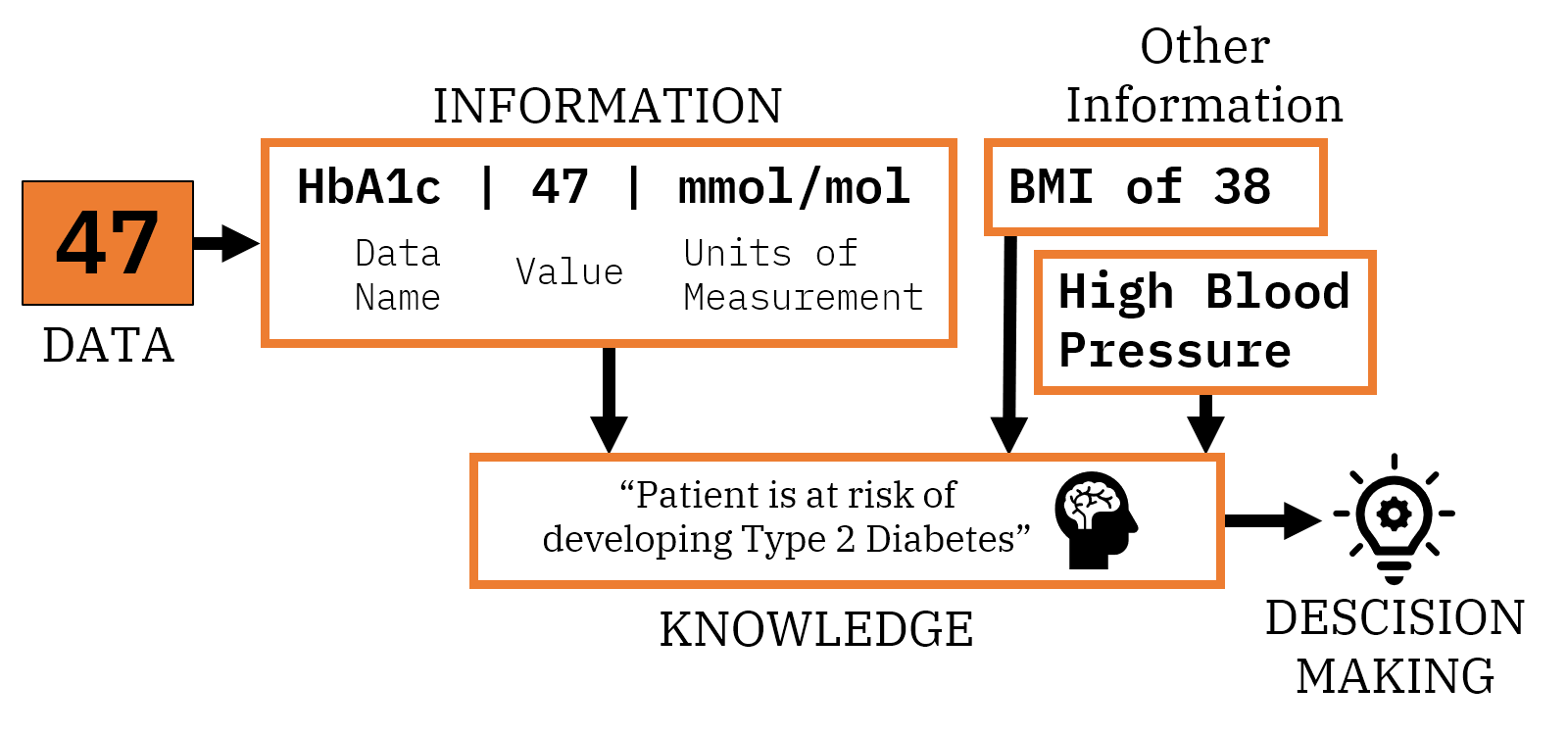Aide-memoire: Data>Information>Knowledge
📅 25 March, 2020
•⏱️2 min read
Information is not knowledge.
It's easy to conflate data with information or knowledge. I frequently hear conversations with data this or information that. This page from NHS Careers describes this as apparently "clinical informatics staff capture, communicate and use data and clinical knowledge to support health professionals." I would argue that they derive or accumulate knowledge from data. I know I'm being picky here but when I focus much of my time on understand the importance of semantics with digital systems, it's important to button down these definitions.
So here's a simple diagram to describe what this means for digital health records:
Data represent real world facts. In this case a number which may have been recorded at a specific date and time. But without knowing it is related to a measurement for HbA1C it is largely useless. That information can then be used within a wider context such as interpreting if this measurement is within a normal range. It might also mean that you want to capture more data as a result.
Of course, that's a simplistic example. Health data can be complex and multifactorial. When we have more data that in turn provides richer information for the clinician. The application of that knowledge for decision making can then change the perceived outcome as follows.
So the potential danger of looking at data or information in isolation is great. It could lead to the wrong decision being made (in this case that the patient is in danger of developing Type 2 diabetes).
So remember kids: DATA > INFORMATION > KNOWLEDGE

